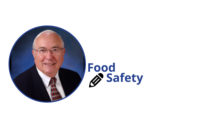
Being in the food industry sure has its share of ups and downs. While it’s filled with great people, yummy products and a vast assortment of high-tech ingredient and equipment solutions, it also contains a slew of not-so-great folks who produce yummy products at the expense of a few food safety measures.
Such is the case for the recent egg recall.
According to several news reports, contaminated chicken feed is likely responsible for tainting close to 500 millions eggs (as of press time) and affecting nearly 2,000 consumers.
To make matters worse, Galt, Iowa-based Wright County Egg, one of the two farms responsible for producing these infected eggs, has been cited for numerous health, safety and employment violations over the years.
This means that if an official stepped in and shut the place down after say, the fifth violation, then this whole egg-tacular episode never would’ve happened.
Or would it?
With all of the regimented food safety laws and scores available at manufacturers’ fingertips, how could something like this happen? What’s worse, how can a company continue to operate despite its laundry list of health violations?
“Food safety just totally fell through the cracks here,” says Caroline Smith DeWaal, food safety director at the Center for Science in the Public Interest, a Washington, D.C.-based non-profit watchdog and consumer advocacy group. “If you have a company violating a number of different types of laws and is found to be a repeat violator … it’s highly likely that they’re also cutting corners when it comes to food safety. But no one was checking.”
No one is accepting responsibility either. In fact, the Food and Drug Administration and the U.S. Department of Agriculture are blaming each other for not doing their job.
As this recall grows and becomes more of a national epidemic, I can’t help but wonder who really is responsible. It appears to be that instead of shutting down this facility as a result of several violations, officials just handed over a slap on the wrist and walked away.
Why does there have to be a national epidemic with reported illnesses before the government actually takes action?
This case presents chilling flashbacks to last year’s food safety incident, where Peanut Corp. of America, headquartered in Blakely, Ga., knowingly shipped tainted peanut butter to its customers. Although it has since filed Chapter 11 bankruptcy, the case reached a $12-million settlement that pays out to those suffering from the consequences, but it doesn’t make up for the fact that the owner knew his products were tainted but didn’t want to spend the money to improve the facility’s food safety measures.
All it takes is one goon to ruin it for the rest of the industry, and thanks to the egg scandal, the food industry is beginning to smell a bit like rotten eggs.
Food producers need to recheck their ethical business operations and shore up food safety measures. They need to invest the money to ensure that their equipment and sanitation efforts are clean.
Meanwhile, the government needs to better reprimand manufacturers who rack up violations. Officials need to enforce stricter policies and maybe even revamp current procedures to include a zero-tolerance policy to ensure that this doesn’t happen again.
It’s time to crack down on food safety, for real this time. No more warning letters, no more probation periods. You produce tainted food, you should pay the consequences.
The food industry is too great to have a couple bad eggs in the basket.



